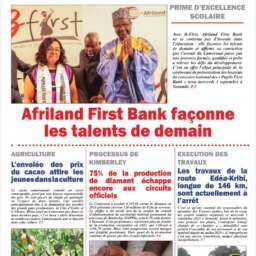(Business in Cameroon) – Domestic rice production in Yagoua, Far North Cameroon, is dragging state finances into the red. From 2018 to 2021, the Yagoua Rice Cultivation Expansion and Modernization Company (Semry) lost CFA7.799 billion, despite receiving CFA2.8 billion in public subsidies. A recent audit by the Chamber of Accounts warns that Semry’s growing deficit threatens national finances.
Semry consistently sells its rice at a loss. Auditors found that producing one kilogram of milled rice costs CFA743, but Semry sells it for just CFA376. Even after a CFA131/kg subsidy, each kilogram sold still loses CFA236.
In 2021, Semry bought 2,500 tons of paddy rice from farmers at CFA187/kg, spending CFA480 million. Processing this paddy produced 1,344 tons of milled rice at CFA478/kg, totaling CFA642 million. Adding indirect costs, distribution, and overheads raised the cost price to CFA743/kg.
As a result, selling 1,375 tons in 2021 caused CFA504 million in losses, which subsidies only reduced to CFA324 million.
Processing Chain Underused
The Chamber of Accounts criticized Semry for underusing its processing plants. Facilities in Yagoua and Maga can handle 46,800 tons annually but processed only 2,687 tons in 2021—just 5.74% of their capacity.
Company officials claim the plants can operate 18 hours a day, but in reality, production stays minimal. Low output makes fixed and indirect costs disproportionately high.
Auditors also flagged distribution expenses of CFA95 million, which exceeded processing costs of CFA74 million. The Chamber called this imbalance alarming since processing is Semry’s core activity.
Worse still, overhead costs averaged 65% of sales revenue—a rate the Chamber described as excessively high.
Options for Improvement
The Chamber of Accounts said Semry cannot blame fixed rice prices alone for its failures. The auditors argued Semry still has tools to improve performance.
“Despite the fact that the selling price of rice is regulated, SEMRY has levers on which it could act to make its processing and marketing activities profitable,” they wrote.
Auditors recommended Semry process more paddy rice annually to maximize plant capacity. Higher volumes would spread fixed costs over more units, lowering unit costs.
They also advised drafting an annual processing plan and slashing bloated overhead and distribution expenses, which severely erode profits.
Without these reforms, Semry will keep draining public funds without delivering on food self-sufficiency promises. The company’s failures cast doubt on the government’s agricultural policies and its ability to turn ambitious plans into real results.
Ludovic Amara

































